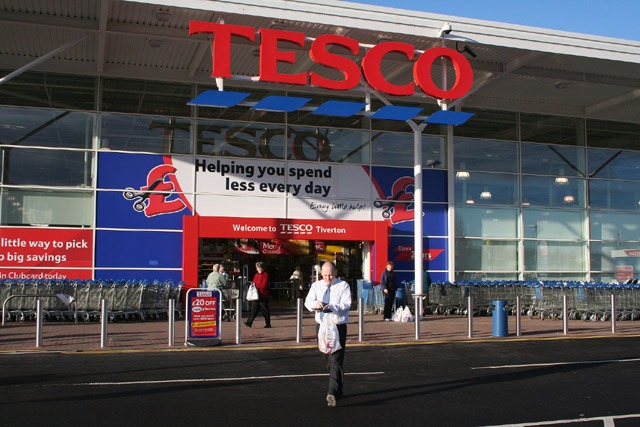Tesco’s decision to remove Buckfast Tonic Wine from its Clydebank store has sparked a heated debate among customers, local residents, and policymakers. Known for its unique blend of caffeine and alcohol, Buckfast has long been associated with social issues in Scotland. The product removal reflects Tesco’s effort to address community concerns, but it also raises questions about consumer choice and corporate responsibility.
Why Tesco Removed Buckfast from Clydebank
The decision to ban Buckfast from the shelves of Tesco’s Clydebank store came after persistent complaints from residents and authorities. The tonic wine, often called “Buckie,” has been linked to antisocial behavior and alcohol-related incidents in the area. Like other regions in Scotland, Clydebank has experienced challenges with public disturbances reportedly fueled by Buckfast consumption.
Tesco’s move aligns with its commitment to promoting responsible retailing and addressing community concerns. A spokesperson for the supermarket emphasized that the decision was specific to the Clydebank store, where the issue had been particularly prominent. The company has stated that it will continue to review the situation and engage with local stakeholders.
Social Issues Surrounding Buckfast
Buckfast, produced by Benedictine monks in Devon, is a fortified wine with a high alcohol content of 15% and a caffeine level equivalent to eight cans of cola per bottle. While it is a legal product enjoyed responsibly by many, its affordability and accessibility have made it popular among younger drinkers and those seeking quick intoxication.
In Scotland, the drink has been controversially associated with antisocial behavior, particularly in urban areas. Studies have highlighted a disproportionate number of alcohol-related incidents involving Buckfast, leading to its reputation as a “problem drink” in specific communities.
Local authorities in Clydebank have often expressed concern over the impact of Buckfast on public safety. The drink’s high caffeine content, combined with its alcohol strength, creates a potent mix that some argue exacerbates aggression and impulsivity.
Mixed Reactions to the Ban
Tesco’s decision to remove Buckfast from the Clydebank store has divided opinion. Many local residents and community leaders have welcomed the move, praising the supermarket for taking action to address a long-standing issue. They argue that restricting access to products like Buckfast can help reduce alcohol-related harm and improve public safety.
On the other hand, some customers and Buckfast enthusiasts have criticized the ban, calling it an overreaction. They contend that the issue lies not with the product itself but how it is consumed. Critics argue that targeting Buckfast unfairly stigmatizes a beverage enjoyed responsibly by many.
The producers of Buckfast have consistently defended their product, stating that it is not responsible for the behavior of those who consume it irresponsibly. They emphasize that Buckfast is a well-made product with a strong following and that education, not bans, is the key to addressing alcohol-related issues.
Wider Debate on Alcohol and Responsibility
Tesco’s decision has reignited a broader discussion about alcohol sales and retailer responsibility. As one of the UK’s largest supermarket chains, Tesco plays a significant role in shaping consumer habits. The company has a history of implementing measures to promote responsible drinking, such as limiting promotions on alcohol and participating in community initiatives.
The ban on Buckfast in Clydebank raises questions about how far retailers should go to address local concerns. While restricting certain products can help mitigate specific issues, some argue that it places undue blame on individual items rather than addressing the root causes of alcohol-related harm.
Advocates for stricter alcohol policies see Tesco’s action as a positive step toward reducing harm. However, others worry about the implications for consumer choice and whether such bans set a precedent for targeting other products based on public perception rather than evidence.
What Does This Mean for Buckfast’s Future?
Buckfast remains a controversial yet popular product in Scotland and beyond. Tesco’s decision to remove it from one store does not represent a nationwide policy, but it reflects the challenges of selling a product tied to social issues. For now, Buckfast remains available in other Tesco stores, as well as through independent retailers and online platforms.
The debate surrounding Buckfast highlights the need for a balanced approach to alcohol-related problems. While restrictions like the Clydebank ban may address immediate concerns, long-term solutions require collaboration between retailers, policymakers, and communities. Education about responsible drinking, enforcement of existing laws, and support for those affected by alcohol abuse are essential components of any comprehensive strategy.
